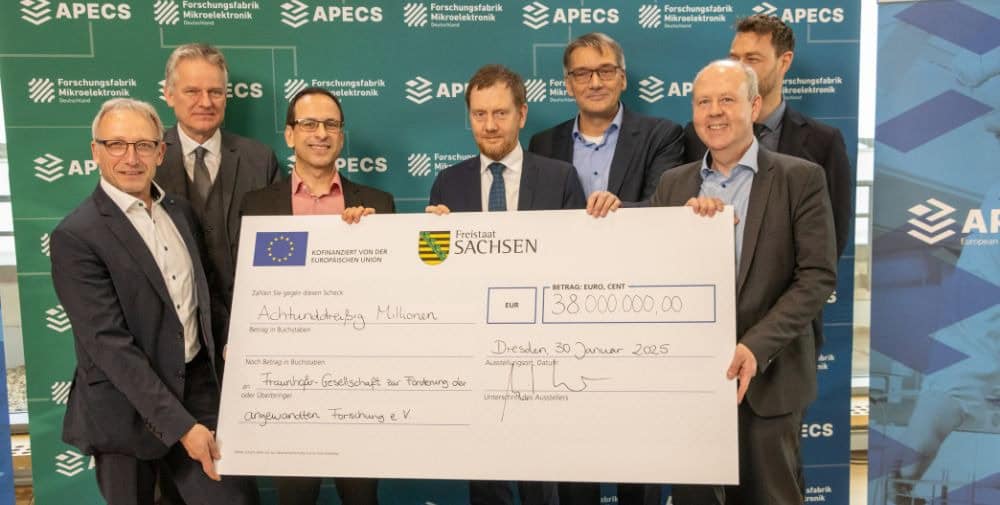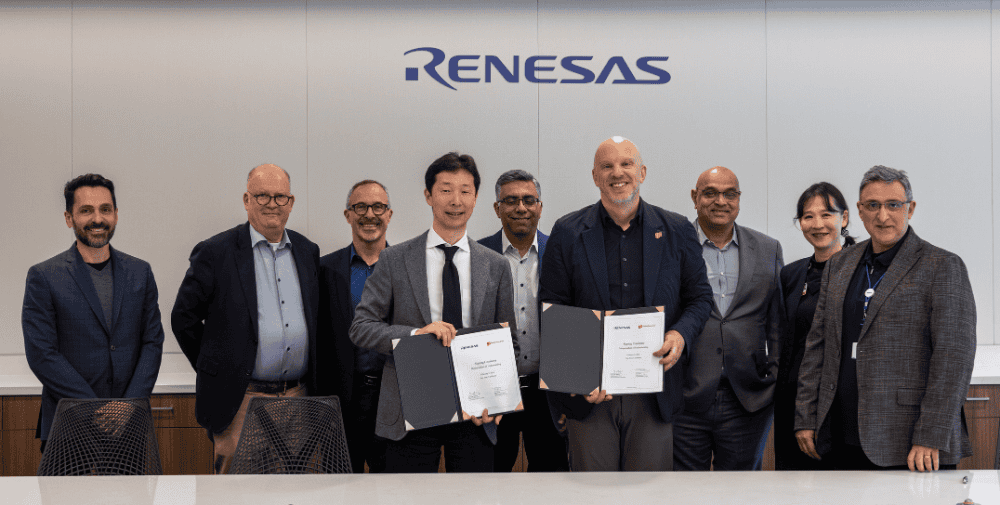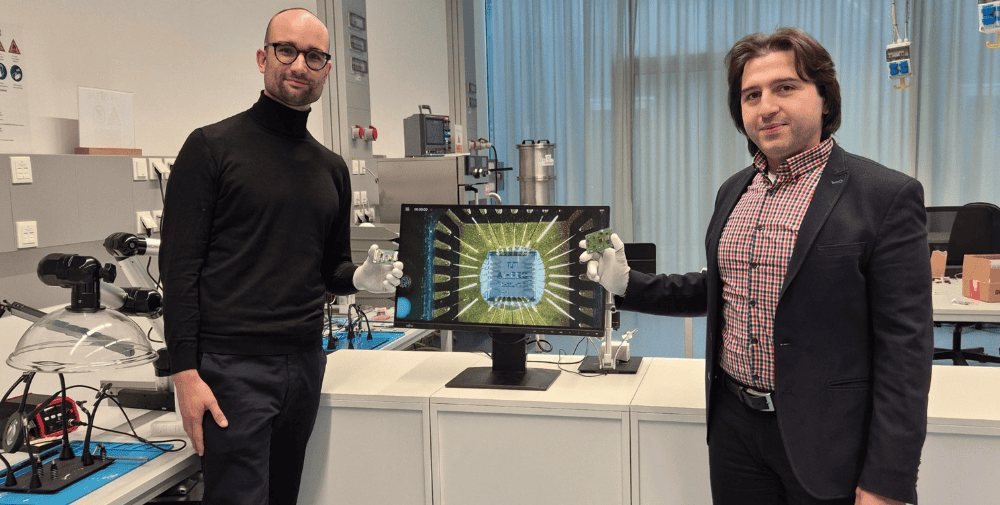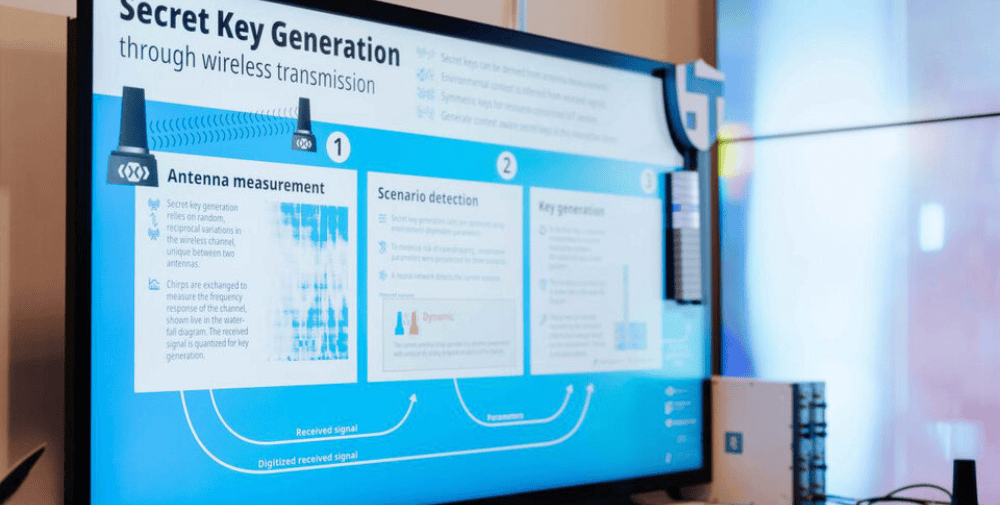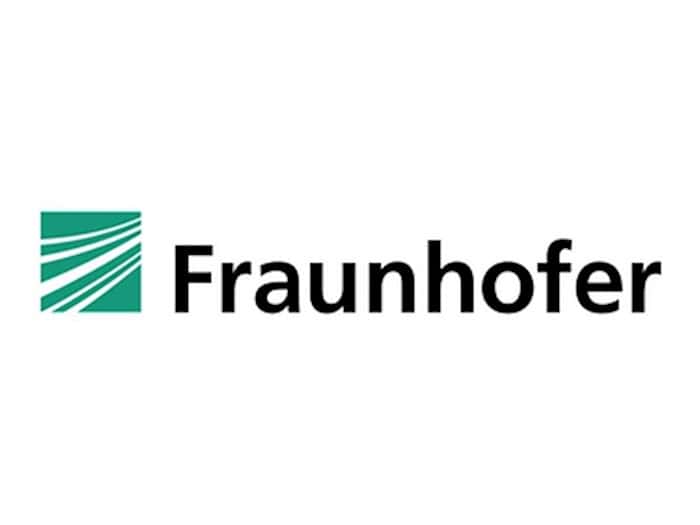
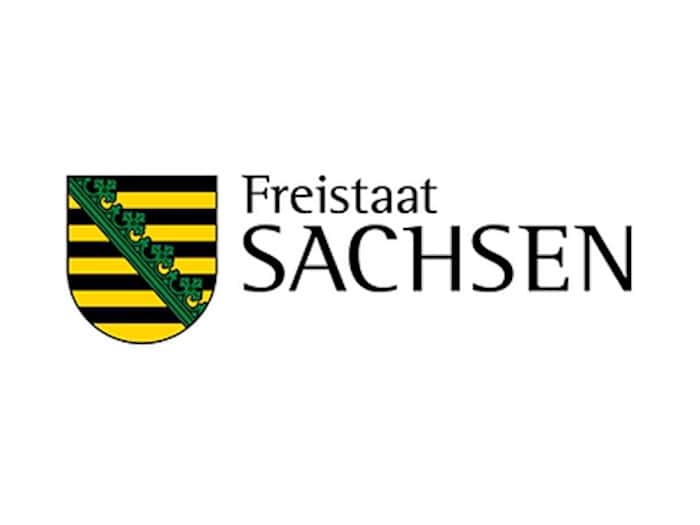
In the context of the pilot line “Advanced Packaging and Heterogeneous Integration for Electronic Components and Systems” (APECS), the Saxon Fraunhofer Institutes IPMS and ENAS and the institute divisions of Fraunhofer IZM and Fraunhofer IIS are significantly expanding their semiconductor research infrastructure over the next 4.5 years. The APECS pilot line is an important component of the EU Chips Act to promote chiplet innovations and increase research and production capacities for semiconductors in Europe. The state of Saxony is supporting this with funding of 38 million euros. During a ceremony on January 30, 2025, Minister President Kretschmer presented the symbolic cheque for the funding amount and learned about the APECS pilot line. There was a particular focus on the Fraunhofer Institutes’ offers for industry resulting from the pilot line.
“With the European Chips Act, the EU has made a smart decision for investment and an expansion of European chip production. It is important for our economy and our prosperity that we in Europe and in Germany become more independent in this key sector. As a leading European microelectronics location, the Free State of Bavaria plays a decisive role in this. The participation of four Fraunhofer Institutes in Saxony in the pilot line will further strengthen and consolidate this position. The Free State of Saxony is supporting this strategically important investment to make Europe’s chip offensive a success,” said Minister President Kretschmer at the handover of the symbolic funding cheque.
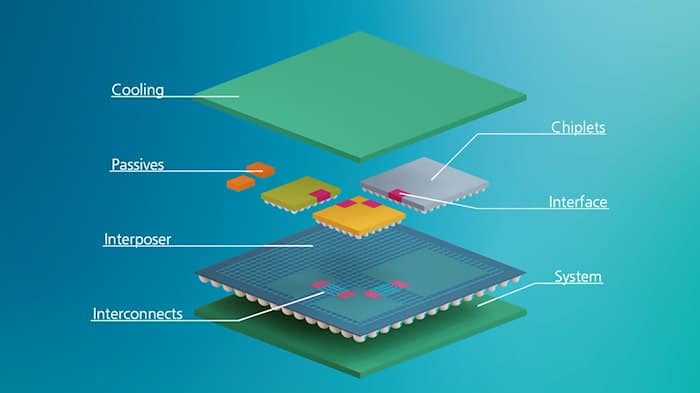
Design of chiplet-based systems based on the modular principle. Photo: Fraunhofer IIS
Saxon Science Minister Sebastian Gemkow adds: “Investment in semiconductor research is urgently needed. We need this boost if Europe wants to continue to shape technological developments in microelectronics and set industrial standards in the future. The research environment in Saxony, with institutions of the Fraunhofer-Gesellschaft, strong universities and partners from industry, forms a strong foundation. A large proportion of the funds invested in APECS by the EU, the federal government and the Free State of Saxony will therefore also benefit local scientific institutions. This will significantly accelerate the transfer of research results to industry and, in particular, strengthen Saxony’s chip industry as a driving force in the European network.”
Strengthening European competitiveness and technological resilience in the development and production of semiconductors
The heads of the four Fraunhofer Institutes are very grateful to the Chips Joint Undertaking, the Federal Ministry of Education and Research and the State of Saxony for their generous support: “The investments via the APECS pilot line will significantly improve the performance of the existing research infrastructure. The Silicon Saxony institutes will thus be able to research pioneering heterointegration technologies and develop them for industrial application. This will provide companies in the immediate vicinity and throughout Europe with enormous innovation potential to strengthen their global competitiveness,” according to the consensus of the institute directors.
APECS: Heterogeneously integrated technologies for Europe’s economy
The APECS pilot line is an important component of the EU Chips Act to drive chiplet innovation and increase research and manufacturing capacity for semiconductors in Europe. The institutes cooperating in the FMD are working closely with other European partners to set up the pilot line and are thus making a significant contribution to strengthening Europe’s technological resilience and thus also increasing global competitiveness in the semiconductor industry.
The pilot line will provide large industrial companies as well as small and medium-sized enterprises (SMEs) and start-ups with low-threshold access to cutting-edge technologies and ensure secure, resilient semiconductor value chains. APECS is co-funded by Chips Joint Undertaking and by national funding from Austria, Belgium, Finland, France, Germany, Greece, Portugal and Spain under the Chips for Europe initiative. The total funding for the APECS pilot line amounts to 730 million euros over 4.5 years.
The APECS pilot line focuses on the scalable industrial transfer of newly developed innovations in the field of heterointegration, in particular the use of new chiplet technologies, and thus builds a bridge to application-oriented research. APECS goes beyond conventional system-in-package (SiP) methods and aims to deliver robust and trustworthy heterogeneous systems that significantly increase the innovative capacity of the European semiconductor industry.
On the topic of chiplets
The idea behind chiplets is to use different types of intellectual property (IP) that can be used for specific functions. IP cores are understood to be a multiply usable, prefabricated functional block of a chip design in the semiconductor industry. This is usually licensed to other IC designers as the intellectual property of the developer in order to integrate it into another, usually larger, IC design. The various blocks are already tested and can be put together like a puzzle, so that existing IC structures can be used and only parts need to be redesigned. A chiplet is therefore not a fully functional individual chip, but a part of a chip that can be combined with other functional elements. The concepts and initial implementations of chiplets not only promise higher integration densities, but also touch on the environmental properties of electronics in terms of resource efficiency, critical raw materials, modularity and reusability of design blocks.
– – – – – –
Further links
👉 www.ipms.fraunhofer.de
👉 www.enas.fraunhofer.de
👉 www.izm.fraunhofer.de
👉 www.iis.fraunhofer.de
👉 www.sk.sachsen.de
Photo: Sebastian Lassak, Fraunhofer IPMS, Fraunhofer IIS/EAS
